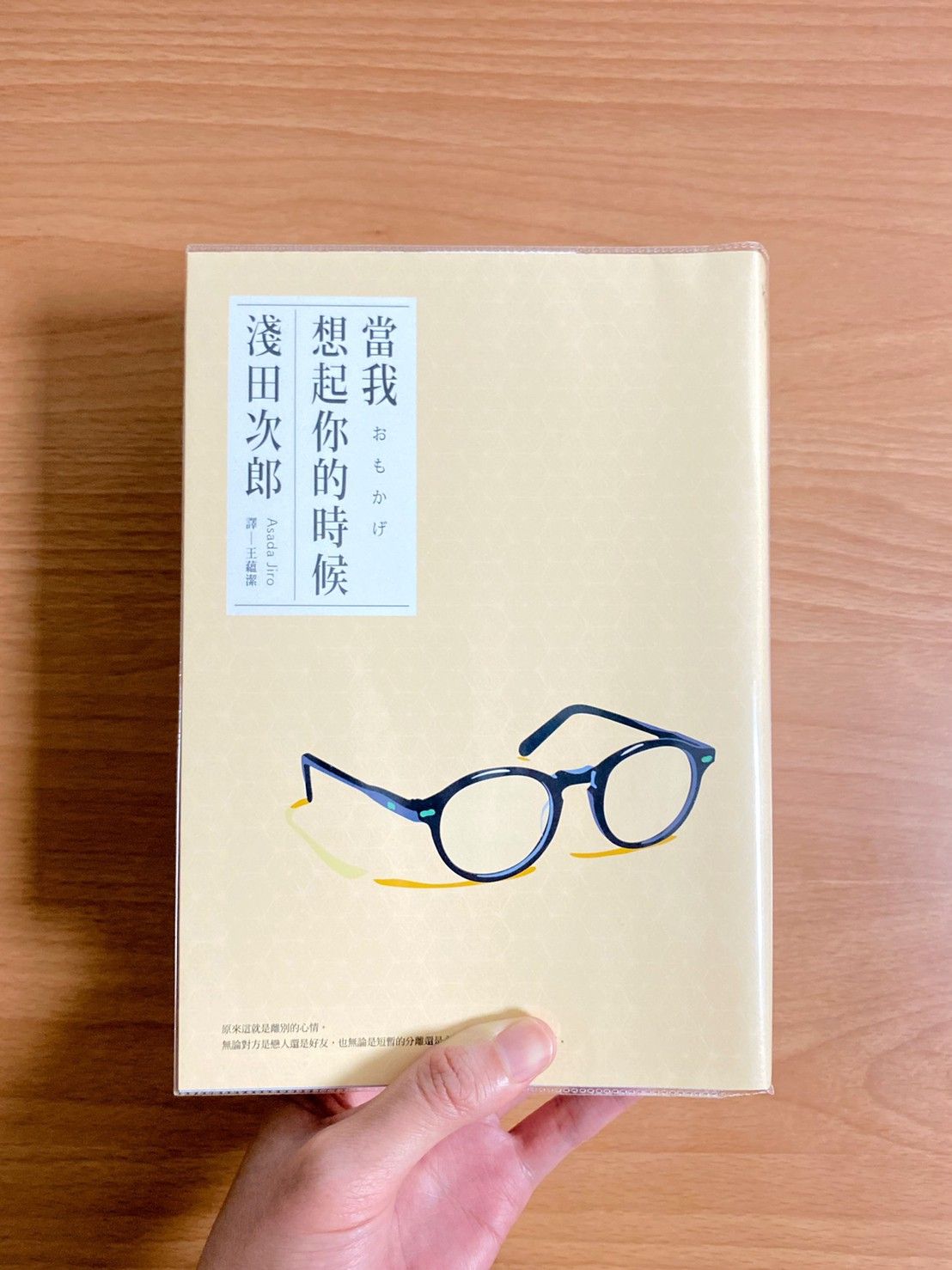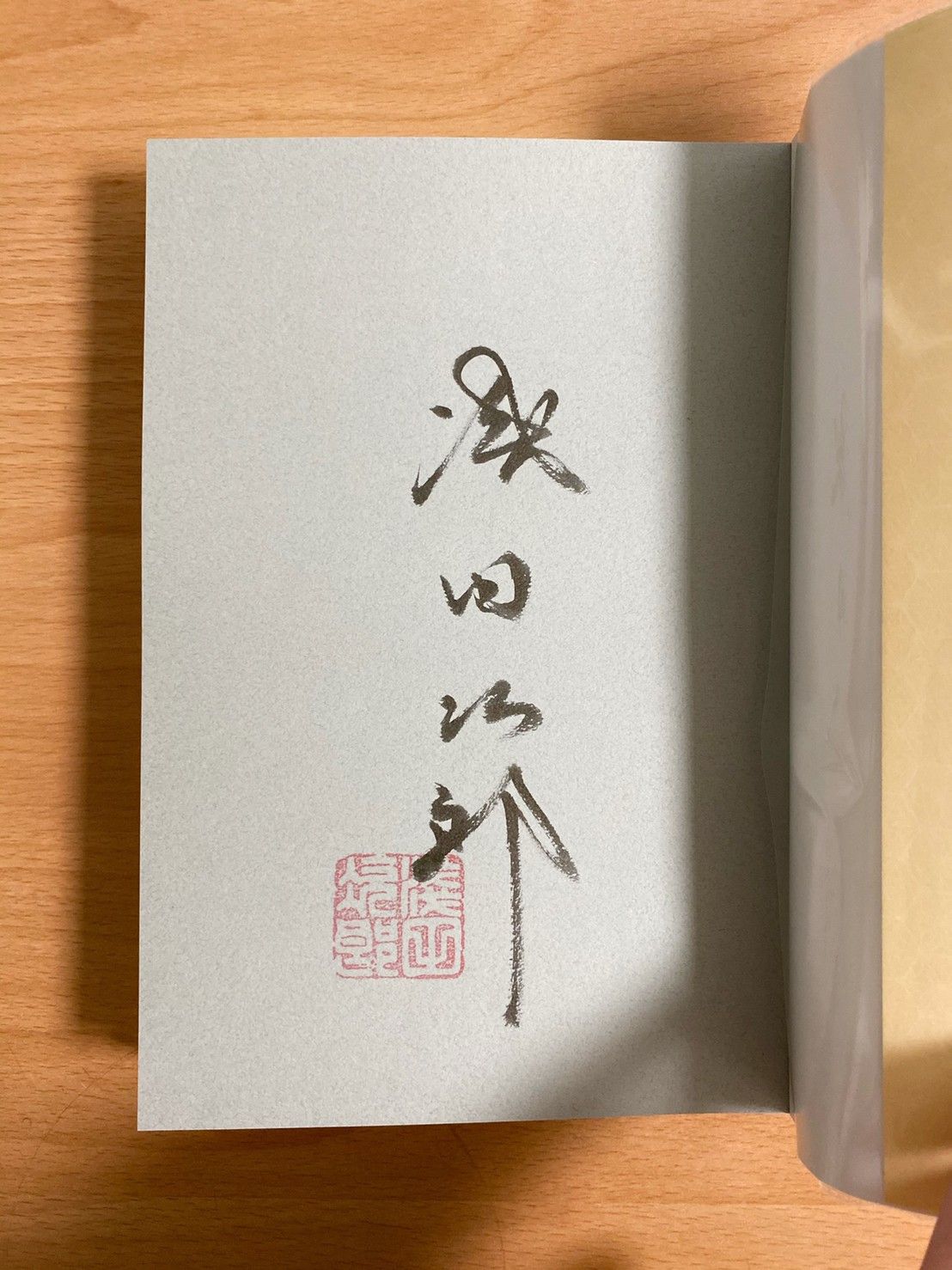
回歸現世生活去,暫不更新,謝謝大家喜歡我過去的文字
Read "When I Think of You" Asada Jiro
Have you ever thought that one day, when you have just completed a stage in your life, and you are about to enter a new milestone, your life will end without warning? On December 16, the protagonist Takewaki Masaichi passed out on the subway on his way home after attending his 65-year-old retirement farewell party. This sudden accident made him one step away from death.
The story is cleverly arranged in the Christmas atmosphere in December, and while the protagonist falls into a coma, a series of adventures that seem to be both realistic and dreamlike occur when the protagonist falls into a coma. This design feels like a tribute to Dickens's classic "Stingy God of Fortune". Although it is a pity that the content does not explain the emotions of farewell and death in the world after reading it, there is no doubt that it is an elegant and gentle story.

It was the feeling of parting. Whether the other party is a lover or a good friend, or whether it is a brief separation or a goodbye, a world has been lost.
There will be a hollow in the heart for a while, which has nothing to do with his status at the time. It is like a drifter who wakes up when the waves hit an uninhabited island, losing time and space. I have had this experience several times in my life. —P.206
The story talks about the protagonist from two perspectives, one is the people who come to visit one after another, who is in everyone's eyes; the other is the self that Takewaki looked back on while he was in a coma. Looking at the fetters between people from their perspective, when they realize that they are about to lose it, they realize that each other has already taken root in their respective life stories and is an existence that cannot be erased. In the face of the death of a person, it is difficult to express such distress in terms of "nostalgia" and "reluctance". Perhaps cherishing the moment is the only correct solution.
"No, unhappiness when everyone is unhappy is different from unhappiness when everyone is happy."
I was about to retort, but my throat choked. I suddenly cried like a beaten child. —P.223
The book has a strong sense of history, bringing out the social changes in Japan after the war, including those who survived the war and the new generation. Takewaki belongs to the new generation, but was implicated by the previous generation and became an orphan. Without a parent and mother, he can only choose to live hard and live as an ordinary person he thinks he is but has never experienced. Although I can't understand the emotion in the book, "If you don't forget some things, you can't live." However, life always emphasizes the need to first suffer and then enjoy. Everyone has had a time to convince themselves that it is not the worst, but Few people will seriously say to themselves, "You have worked hard enough" and "You are actually unfortunate." The protagonist who has been brave for 65 years has only got emotional catharsis at this time, and his nose is a bit sore after seeing this.
I don't know when it started, I gradually regarded thinking about unimportant things as lazy, and tried to eliminate unproductive behaviors, sealing free thinking and imagination. No matter how long the life span is, such a life is short, and such a death is poor. ─P.153
I especially like this passage, why does everything have to be meaningful, how about slowing down your life and doing something meaningless? The meaning of existence is not to be busy proving something to others, but to lose yourself.
"This is not Grandpa Sakakihara, this is just the clothes he wore before."
I should never forget this sentence for the rest of my life. Grandpa's soul has gone to heaven, it's just the clothes he wears in this world, it's just the body. No matter who dies, as long as you think like this, you won't feel sad. —P.241
For parting, the author uses the metaphor of "clothes" to comfort those who are left behind, which is really warm and moving. Because of the war, Grandpa Sakakihara, who was only nine years old at the time, lost his close relatives. Like the protagonist, in order to survive, he chose to forget it. When he lived to old age, his wife and family were separated, and his life was not rich. His daily entertainment was to hang out in the hospital. Seemingly unfortunate, when he took Takewaki out to take a bath, drink and chat, he seemed more free and easy than the protagonist, and felt that he had lived a good life in this life, which was really enough. I don't need any great achievements to prove it, but I must be worthy of myself. I like Grandpa Sakakihara's dashing personality very much!

The scene of taking the subway appeared repeatedly in the book, and it was only later that I understood that the author used the subway to symbolize a person's life. Every time Takewaki took the subway in the adventure, he returned to himself at each stage. With the ride again and again, he gradually faced his own pain. In this long train with life, old age, sickness and death, we are not just passengers like the protagonist. The good thing is that we get to know each other by riding together; the sad thing is that there will always be people getting off on the way; the surprise is that we will meet more differences people. Although their respective destinations are different, I hope that everyone in the journey will be free and full of rewards.
Like my work?
Don't forget to support or like, so I know you are with me..
Comment…